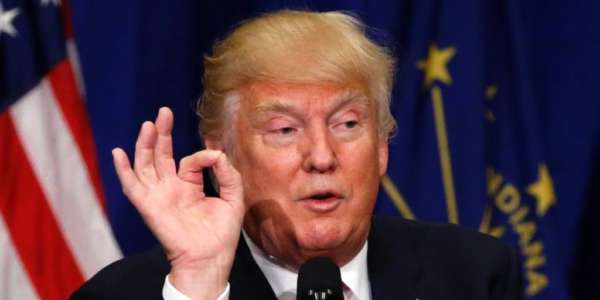 SEATTLE — Donald Trump not only won Washington state’s primary in a landslide with around 76% of the statewide vote, but he won every single one of the 39 counties.
SEATTLE — Donald Trump not only won Washington state’s primary in a landslide with around 76% of the statewide vote, but he won every single one of the 39 counties.
As a result of his high margins, Trump will likely sweep all 44 Washington Republican delegates to the National Convention. However, the presumptive nominee won’t hit the needed 1,237 delegates for nomination until the contests next month.
Trump is the only Republican candidate still actively campaigning in the race. Both Texas Sen. Ted Cruz and Ohio Gov. John Kasich suspended their campaigns the same week ballots went out in Washington.
Despite dropping out, Cruz and Kasich both received around 10% of the vote statewide. However, neither candidate hit the needed threshold of 20% to pick up delegates.
Trump did particularly well in southwestern Washington, where his state campaign chair, State Sen. Don Benton of Vancouver, lives. He also did well in Grays Harbor, a county where he won around 85 percent of the vote.
“In Grays Harbor, you’re seeing timber jobs that never returned since the 80s, and even though it still did very well for Democrats, it’s been sliding towards the Republicans for years, and that’s reflected in Trump’s support,” said Marco Lowe of Seattle University.
“In Clark County—you had a [former] Republican Party Chair and State Sen. Don Benton campaigning 25 hours a day for him there, and you just don’t see the economic recovery there that you see around us in King County,” Lowe continued.
Trump called into a Lynwood victory party Tuesday night, telling supporters, “We’re going to be out there a lot, because I think we can win the state of Washington, I think we can win Oregon.”
On the Democratic side, the results didn’t count towards delegate allocation, but the win was a symbolic victory for local Clinton supporters.
Clinton won over 53 percent of the vote statewide and won more than 20 counties across the state. She had a particular strong showing in King County, where she won nearly 60 percent of the vote. During March’s caucuses, Sanders won all 39 counties and picked up more than 70 percent of the caucus vote.
Delegates were allocated based on those results; Sanders picked up 74 of Washington’s 101 pledged delegates.
However, more voters participated in the May primary — more than 650,000 voters who identify as Democrat. By comparison, under 500,000 voters who identify as Republican voted. Additional ballots will be counted Wednesday.
“It was a big swing. Look for some momentum going into California, and all of the super delegates that were really put in a vise grip by the Sanders supporters saying, ‘You need to swing to our side.’ I think some of those Sanders supporters are going to release some pressure come the morning,” said Lowe.
“Even though this win meant nothing for us, it meant everything,” said Clinton supporter Bradley Warren. “It was an accurate representation of the state of Washington and debunked Senator Sanders argument that the superdelegates had to support him.”
Sanders supporters disagree.
“The primary doesn’t matter for delegate count, so people didn’t bother,” said Sanders volunteer Ben Lindsey. “Our supporters who organized so hard to get out the vote for the caucus didn’t do so with the primary, for the same reason: it doesn’t affect the delegate count.”
The difference in results, however, will no doubt reignite the debate over caucus versus primary. Washington’s caucus turnout last March was just shy of 2008’s record number of around 250,000 caucusgoers.
The May primary more than doubled the turnout on the Democratic side, which could bode well for the party heading into the general election.
“The Democrats are jazzed; they want to see November, and it’s probably going to be a Clinton sweep in this state,” said Lowe.
The Washington State Democratic Party declined to comment on the primary results, since delegates were allocated through the caucuses.
The State Party did not promote the use of the primary, per Party rules.
Democratic Central Committee will decide the process for next election cycle in early 2019. A public comment period is part of the period, for about month prior to the meeting.
Who makes up the Democratic Central Committee?
“The Party will have a hearty debate over how to allocate its delegates in the run up to the next presidential election,” said spokesman Jamal Raad.
